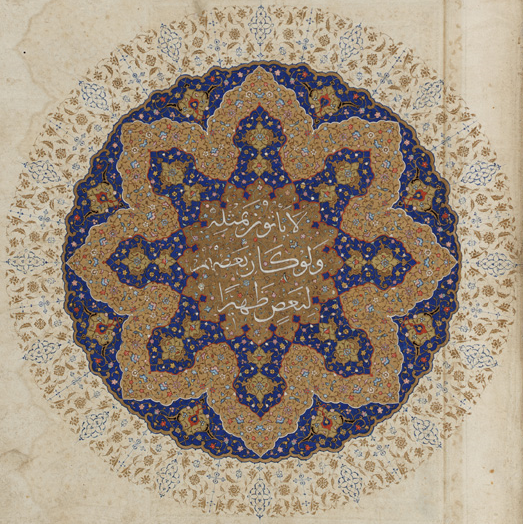Like most fundamentalist churches, mine taught that wives were commanded by God to give their husbands all the sex they wanted. Technically, husbands had to do the same for wives, but it would have been a strange, transgressive woman who wanted more sex than her husband. (Jonalyn Fincher of Her.meneutics and I disagree.) The rationale behind this command comes from 1 Corinthians 7:4:
The wife hath not power of her own body, but the husband: and likewise also the husband hath not power of his own body, but the wife.
It’s one of the most stunningly egalitarian verses in the Bible. How did it become so one-sided? How did it become about the negation of consent? How did evangelical-fundamentalist culture construct a model of sexuality and reproduction that implanted a deep-seated terror of sex and pregnancy in my adolescent mind?
Without further ado, I bring you:
How to Construct a Terrifying, Dangerous, and “Biblical” Model
of Reproduction That Harms Young Girls
First, preheat your brain to 1 Corinthians 7:4.
Step 1: Construct a binary model of sexual desire, in which only men are sexual beings. Evangelical culture loves drawing binaries where they don’t exist, and exploiting extant but barely perceptible binaries. Their absolute favorite binary is the intransigent belief that men are visual and women are emotional. (See the first link for the stunningly idiotic statement that men naturally sexually objectify women.) A close corollary is that men want sex and women want romance. These are not Christian myths; they’re cultural ones. In the extremely Christian Middle Ages, women were the ones perceived as sexually incontinent and carnal, whereas men were cerebral and spiritual. But evangelical culture has no time for medieval history, especially when it subverts a supposed timeless truth grounded in nature. The result? The above Bible verse becomes a command almost exclusively given to wives to make sure their husbands are sexually satisfied, whether they themselves want sex or not. Since a woman’s body belongs to her husband, she cannot refuse. Marital rape? Not even possible.
Step 2: Eliminate birth control. Increasingly, the Religious Right has attacked birth control as the next logical step in their longstanding crusade against abortion. Former Presidential candidate Rick Santorum made the bizarre campaign promise to talk about the evils of birth control in America. My church similarly taught that birth control had no place in marriage and that sex had no place anywhere else. The result? Sex can always result in pregnancy.
Step 3: Confine women to lives of childbearing and childrearing with no outlet for the duration of their reproductive lives. This is accomplished through the cult of motherhood, condemnation of day care (gotta love the phrase “liberal slaughterhouses of the mind”) and public school, peer pressure to homeschool, explicit commands that women be “keepers at home,” courtship and stay-at-home daughterhood, vicious jabs at prominent women like Hillary Clinton and Nancy Pelosi, and vague jeremiads about the masculinization of working women. Always hovering in our minds was the implicit judgment of women who refused their husbands sex to avoid getting pregnant; how could they expect their husbands to be faithful in those circumstances? They were forcing their men to be celibate, to act against their natures!
Step 4: Treat single women like suicidal dodos (self-destructive and doomed to extinction). Being single seems like the easy way out, right? If marriage is such a raw deal, just don’t marry!
Not so fast. Not only will some evangelical-fundamentalist churches refuse to acknowledge your autonomy even if you’re forty-five years old and have lived on your own for twenty years, but most will concurrently deny your existence. If you aren’t placed under the “headship” of your senile father or your baby brother, you’ll be told you’re an abomination. An affront to God’s order. An unnatural being. You see, the narrative of femininity perpetuated by this culture requires that women be inherently attracted to wifehood and motherhood. That’s why there’s no equivalent to nuns in evangelical Christianity (besides fear of Catholics, of course). Nuns would be unnatural; every woman secretly yearns to submit to her godly leader-husband and nurture her little arrows for the Lord. If you don’t want to marry, you must be concealing evil spirits of harlotry and lesbianism. Why else would you go against your God-given nature?
The result: I was not a dumb kid. It was painfully obvious to me that I was facing down a life of inevitable, nearly interminable childbearing with no choice, no agency, and no room for any plans or dreams of my own. If I stayed in evangelical-fundamentalist culture, I would have no say over whether or when I became pregnant. I would be married young through a heavily-supervised courtship process, required to submit to my husband and forbidden to refuse him sex or use birth control. My husband could rape me with impunity, since my body technically belonged to him. Since I was sexually available to him at all times, whether consenting or not, I would also be open to childbearing for the rest of my fertile years. I would also be powerless to space my children. My uterus was my prison, my mammary glands the padlocks on the doors.
Worse yet, in my church, women were told we were merely “incubators” for male seed. A man’s children were his; a woman’s children were also his. There was effectively no difference between a man’s children from another marriage or the children a man and woman had together. All belonged to the father. The mother was just the vice president: a useful source of authority in her husband’s absence, but ultimately powerless.
All of this, combined with my father’s coercive desire for sex and my mother’s submission, made me utterly terrified of pregnancy. Not of men – no, I had male friends who kept me ever conscious of the fact that men had feelings, too – but of pregnancy. Pregnancy was the inevitable prison. Pregnancy was the symbol of all things oppressive and invasive to me. I watched pregnant women in my church dutifully obeying their husbands and felt sick to my stomach. The pregnant belly was a symbol of intimacy in a system that made intimacy exploitative. The elimination of all sexual agency (most importantly the de-legitimation of “no, I don’t want to”) meant that marital sexual relations looked a lot like the rape of a slave by her master. After all, there was precious little in the Bible to protect women from husbands whose intentions were less than kind or respectful. A woman’s only protection was the goodness of her husband’s heart, the absence of which is hard enough to pinpoint in abusive types even with a lot of contact, let alone in the courtship system.
Pregnancy and babies, to me, signaled the dehumanization of women. Once women became mothers, they were trapped forever, at the mercy of their husbands. I looked at pregnant bellies and I saw swollen bee stings inflicted by aggressive overlords. In darker moments, I imagined myself committing suicide if I became pregnant. Abortion would save my life (a desperate realization that shocked me a little bit), but I would be cast out on my face. Pregnancy therefore looked like the end of the road. A death sentence. Once the wedding bells rang, I was a soul without a body in the eyes of the church.
Extreme? Yes. It was an extreme circumstance that led me to these conclusions. Would I have developed a pathological fear of childbearing without being taught that my own reproductive organs were the instruments that would be used to enslave me? Definitely not.
I’m not as tokophobic as I used to be, but I still have no intention of getting pregnant. I’ve spent my entire free life trying to convince myself that it wouldn’t be so bad. I’ve read everything there is to read about pregnancy complications, maternal health and mortality, and medical interventions. I’ve learned about midwives and birthing centers, epidurals and episiotomies, c-sections and homebirths and VBACs. I no longer feel revulsion at other women’s baby bumps, although the foreignness of their experience does make me nervous. I no longer cry when a girl child is born for fear of her future. I understand now why people want children and how beautiful a family can be. But I can’t cross the final hurdle. After wrestling with my fear of pregnancy for eighteen years, I’ve ceased to fight myself. I don’t know whether I would have wanted to have kids of my own if the choice had been left to me. But the fact is, it wasn’t. It was a fate placed on me from the moment I set foot in my church at the ripe old age of seven.
I will never give birth. I’m at peace with this fact. I will probably adopt children later, as I feel that motherhood itself could be an adventure and a wonderful opportunity to love and mentor a young person. But the terror I’ve mostly expunged still lurks at the edges. There will be no baby bump for me, lest I spiral downwards into a place so dark and dangerous that I may never climb out again. I don’t pretend that most or even more than a few girls raised in fundamentalism will make these connections and develop this fear; as far as I know, I stand quite alone in having run away from pregnancy. I do urge all of you, however ridiculous this may sound to you, to think about the messages you send to your daughters about pregnancy, childbirth and motherhood. Your daughters will be adding up the pieces you give them to make their own worldviews. Stay a step ahead: think about whether the results of your teaching are healthy. Above all, make sure you are teaching your daughters that they are free, that no one can use their bodies without their permission, and that they can be mothers but they can also do other things. If I been raised with a choice, I would not have had to fight an eighteen-year battle for my survival and independence.












